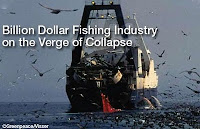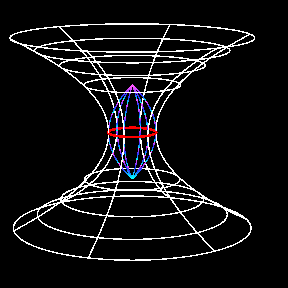. I don't agree with everything it says, but that's OK. It has some overstated gloom and doom in my opinion, but I like the overall message. It's from Tim Winton, patron of the Australian Conservation Society.
AUSTRALIANS are passionate about food. It's impossible to ignore the fact our culture is in the grip of a food revolution. Eating well is no longer the preserve of an elite. Cooking creatively is a mainstream aspiration and diners enjoy a cuisine that's an eclectic regional fusion of old and new worlds.
For many of us, the centrepiece of Australian cuisine is fish. Whether we're at home or at a restaurant, seafood is the culinary currency of celebration.
In previous generations we served roasted meats on special days, but in many homes prawns, rock lobsters, fish and oysters are now more commonly served.
Seafood is lighter; it seems more suited to our climate. And of course, in an era when Australians seem to want to eat more and weigh less, fish is sold to us as a panacea to our health problems. We want to give our children the healthiest start in life that we can.
And tastes have broadened enormously. We eat species our grandparents considered bait. Restaurants and cafes now offer everything from mussels to marlin. But as our palates are educated and our curiosity constantly piqued, our expectations grow. And so does demand.
With so much good seafood on offer, and with such an abundance of energy and ideas in the business of cooking and promoting it, you could easily get the idea that this incredible plenty extends to the fisheries and oceans themselves. The seas that supply the stuff we hanker for seem to be limitless in their bounty. Yet nothing could be further from the truth.
The world's oceans are in trouble. Yes, pollution and irresponsible coastal development are taking their toll, but overfishing is the single biggest threat to the marine environment.
Eighty per cent of the world's fish stocks are overfished or fished to their limit. Global catches peaked in the late 1980s and have been in precipitous decline since, and now 90 per cent of big predatory species such as bluefin tuna, swordfish and sharks are gone.
Unless fisheries management is radically improved, we face a catastrophic collapse.
Of the 53 top fishing nations, Australia ranks a startling 31st in sustainability. We continue to exploit vulnerable or overfished species such as southern bluefin tuna, orange roughy, gemfish and many species of shark.
For the past 50 years we've fished the oceans with the same industrial intensity with which we once clear-cut our forests, as if there were no tomorrow. On land we pulled back at the very brink, but on the high seas we're still kidding ourselves.
How do we reconcile this tough news with our appetite for fresh, healthy seafood?
Well, perhaps by acknowledging that this is not someone else's problem; this is about us and our habits and tastes. The oceans are at the mercy of our expectations.
But nothing modifies expectations like fresh knowledge.
To make informed judgments about the seafood they buy, consumers need coherent, well-researched, impartial information, material that's easy to access and free from commercial influence. Until recently, this has been hard to find. Non-government organisations such as the Australian Marine Conservation Society have begun filling the gap.
Discriminating diners want to make intelligent and responsible choices. Why should they accept low standards about the provenance of what's on the plate when only excellence will suffice at every other point of the dining experience? In a culture of excellence, why should a dodgy product from an unsustainable fishery be any more acceptable than something poorly cooked?
It's important to know where a fish comes from, how it's caught and how it fares as a species.
A sustainable choice favours quality over quantity, and this needn't come from any dour or ascetic impulse because, any foodie knows, elegance is born from restraint. Care, at every level, adds value. Chances are, if you buy fish carefully, you'll prepare it with similar deliberation.
Most sustainable fish tend to be smaller, faster-growing species, and they're often the most local produce, the kinds of things we overlook and undervalue.
A tasty fish doesn't need to be exotic; it needn't be as long as your arm. The chances are your best choice is one of the species you caught as a kid: squid, herring, whiting, mudcrab, mussels.
It's often startling to learn a fish's story: what's wild, what's caged, what's pointlessly wasted and which species are in trouble. It's an even bigger surprise to know how little independent information is readily available.
What's not so shocking is how quickly the mood has begun to change in favour of making informed choices. After all, nobody wants to be dudded.
Our buying habits at the market or restaurant will help shape the business of seafood. The explosion of food culture shows just how fast things change.
Suppliers will respond because they must. The choices we make as individuals and groups have tangible and multiplying effects on the market.
As people begin to favour sustainable fisheries, voicing their concerns to suppliers and retailers, voting with their wallets as well as their feet in restaurants, they will transform the seafood industry and perhaps even rescue it from itself. There are too many good reasons not to try. When we buy food we think first of our families, our children. For their sakes we need to know food is safe and secure. Unless we properly value what's left of our seafood it may, quite soon, be neither.





























